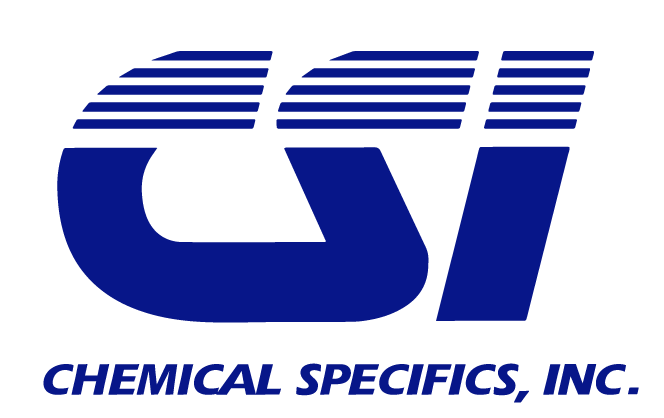TABLAO 2013 © DESIGNED BY NYC RESTAURANT

LUNCH
Monday - Friday
11:00am - 4:00pm
In this section we answer all the Frequently Asked Questions
about all our services and your concerns

Frequently Asked Questions
FAQ





CSI
SERVICES
BUSINESS HOURS
LOCATION


Why is water treatment necessary for my cooling tower or boiler system ?
Water is the most commonly used heat exchange medium in heating and cooling systems, industrial plants, hospitals, and countless other facilities. It is cheap, abundant, and excellent at picking up heat from one device and transferring it to another. However, all the other properties of water make it a bit less desirable unless they are controlled. Water is often call called the universal solvent, it can corrode and attack expensive equipment and piping surfaces. Water is the source of life. It can be a growth medium for fouling algae and slimes, metal eating bacteria, and even some pathogens that can cause disease in humans. Water often contains dissolved minerals, often referred to as hardness. These minerals can coat and foul critical heat exchange surfaces. To tame these damaging properties, water must be effectively treated with corrosion inhibitors, dispersants to control deposits, and biocides to control microbial growth.
CSI provides full service water treatment programs including chemical feed and monitoring equipment, testing services, and chemicals to effectively minimize these problems. These services relieve your staff of the need to handle chemicals, learn complicated water chemistry, and obtain certifications and accompanying record keeping.
How often should I clean my cooling tower ?
In the early 1980s following a Legionnaire’s disease outbreak, the NYC Department of Public Health promulgated guidelines for the maintenance of cooling towers and condenser water systems. In this guideline, they recommend that cooling towers be cleaned and sanitized at least annually on seasonal cooling towers and twice per year for systems operating year round. However, some systems may need more frequent cleanings if conditions like nearby construction, road work, exhaust vents or other nearby activities that might cause the cooling tower to scrub and capture an unusual amount of dirt from the air, are present. Cleaning and disinfection should include applying cleaning chemicals and compatible biocides to the cooling tower, circulating overnight, and subsequently draining, flushing, and mechanically cleaning the cooling tower. While the NYC Department of Public Health could not predict how effective such a program would be at controlling Legionella, they knew that such a program combined with an effective water treatment program would represent good engineering practices and help keep equipment operating efficiently and effectively.
Why should I clean my air cooled condenser?
It has been well established that NYC air often contains significant amounts of particulate material, particularly sticky hydrocarbon combustion products from automotive exhaust, diesel vehicle fuels, smoke stacks, and many other materials. Over time, materials coat, foul and even block air flow over air cooled condenser coils and fins. When these condensing coils become fouled or blocked, they cannot remove the heat from an air conditioner’s freon system. As heat builds up in these systems, the pressures increase. Eventually the refrigerant pressure can build to the point it could damage the equipment. A pressure switch shuts the system down to avoid significant damage, a condition known as “cutting off on high head pressure”. When this occurs, you are left without any air conditioning often on the hottest days of the year. Even before the equipment shuts down, elevated refrigerant pressure means you are doubling or tripling your energy costs and shortening equipment life. Regularly scheduled preventative cleaning of these coils can prevent this condition and save you energy and equipment dollars.
What type of Glycol services do you provide?
We provide a full range of HVAC grade glycol based antifreeze and heat exchange solutions and related services. Our laboratory can analyze the level of freeze protection in your system and the adequacy and condition of the glycol including corrosion inhibitor levels. Glycol and water solutions are corrosive to metal piping and become progressively aggressive as they age. Thus, it's important to test your glycol twice per year to protect your investment in your heating and cooling equipment. When needed, CSI can help you remove and properly dispose of old glycol, clean and sanitize fouled systems and purchase and install top line antifreeze solutions including Dowtherm and Dowfrost.
Will cleaning my duct work make my work place healthier?
EPA studies have not established a link between cleaning ductwork and any health benefits. However, in crowded urban areas like New York City, HVAC systems can accumulate a prodigious amount of dirt and dust. Many of these systems are rarely, if ever, cleaned making the system that delivers the air throughout your facility badly fouled and dirty. CSI is a long standing member of the National Air Duct Cleaners Association (NADCA) and provides a complete range of duct, air handler and coil cleaning services that comply with the rigorous standards of that organization. Call us for a free inspection and quote for cleaning your commercial air conditioning system.
I’m worried about the condition of my piping system how can I evaluate it?
CSI can provide a wide range of pipe testing services including non-destructive ultrasonic thickness measurement of piping in place even while full of water and operating. Ultrasonic testing is performed by utilizing a pre-calibrated ultrasonic measurement device to estimate the remaining thickness of the piping without damaging or dismantling the piping. Our laboratory can also perform failure and deposit analysis on piping that has leaked or become blocked by deposits.
My cooling tower fill is sagging & water is spilling out of my tower.
Can it be repaired?
Yes it can. CSI has rehabilitated hundreds of cooling towers restoring them to efficient operation and saving the enormous cost of removal and replacement. We extend the working life and restore efficient operation of cooling towers. We have developed techniques to rehabilitate cooling towers from 5 to 5,000 tons and can fix leaks, apply protective coatings, install new fill materials and drift eliminators, and design, fabricate, and install complete new spray systems.
Can my plate and frame heat exchanger performance be helped by cleaning?
Plate frame heat exchangers (PHX) are critical heat transfer surfaces that are vital to the efficient operation of your HVAC system. As these devices become fouled or the narrow passages between the plates become blocked with dirt or deposits, the temperatures and pressures can change from their designed operating limits. CSI’s trained technicians and mechanics open, disassemble, clean and reassembly your PHX bringing it back to its original performance and efficiency. If needed, we can provide replacement plates and gaskets using OEM parts or cost saving parts from reliable third party manufacturers.
My drinking water is discolored or has a strange odor what can be causing this?
CSI’s trained technicians can sample water from your location and deliver the samples to a certified testing laboratory for chemical, physical, and microbiological analysis. Our engineers can help you interpret the results of the analyses to determine if there are things you need to do to mitigate problems or improve water conditions.
Can I be fined if I don’t clean my building’s roof tank or storage tank?
The NYC Department of Health requires that building water storage tanks be inspected and/or cleaned and sanitized at least once a year, and the results of the inspection or cleaning posted. CSI is licensed by the City of New York to perform domestic water tank cleanings as well as cleaning other water tanks and domestic water coils. A recent NY Times article described alarming conditions in a random selection of roof tanks that their reporter inspected and noted that between 2010 and 2012 the city levied $700,000 in fines against buildings that did not comply with these standards.
http://www.nytimes.com/2014/01/27/nyregion/inside-citys-water-tanks-layers-of-neglect.html
CSI OFFICE HOURS
MONDAY - FRIDAY 7:00AM - 6:00PM
NOVEMBER, DECEMBER
JANUARY & FEBRUARY
MONDAY - FRIDAY 7:00AM - 5:00PM
46-09 54TH ROAD
MASPETH, NY 11378-1019
PHONE: (718) 361-6666
FAX: (718) 361-0450
2014 © DESIGNED BY NYC MEDIA GROUP
Where can I get information about NYC/NYS Cooling Tower mandates?